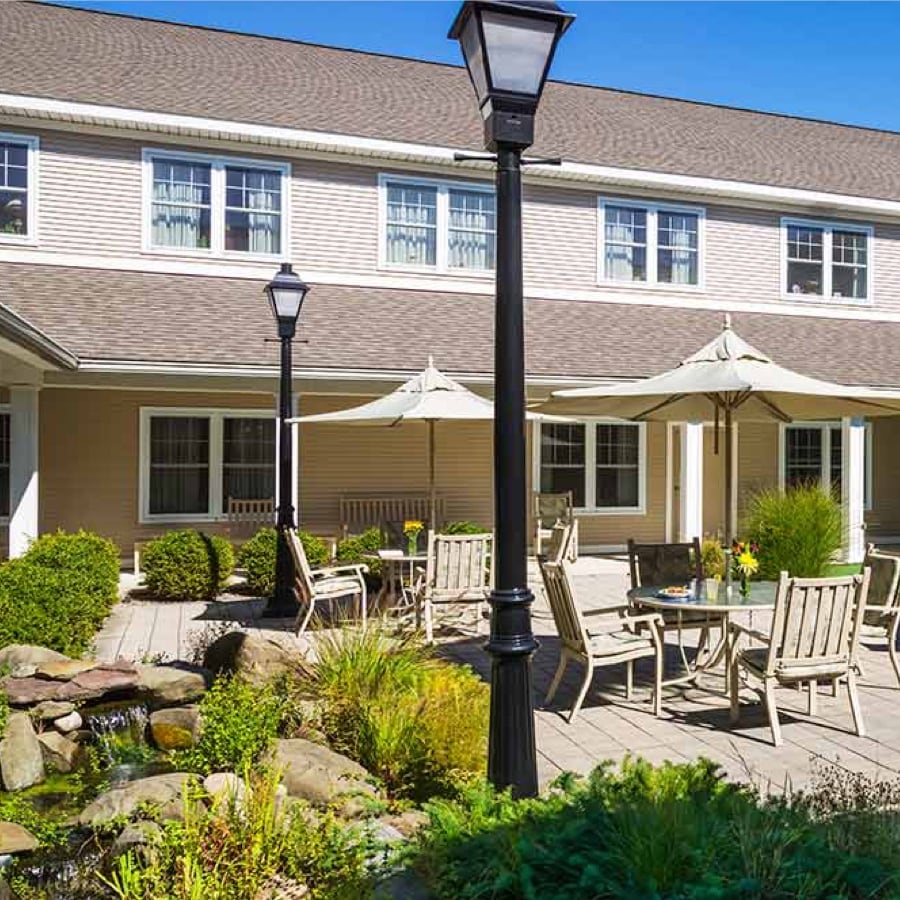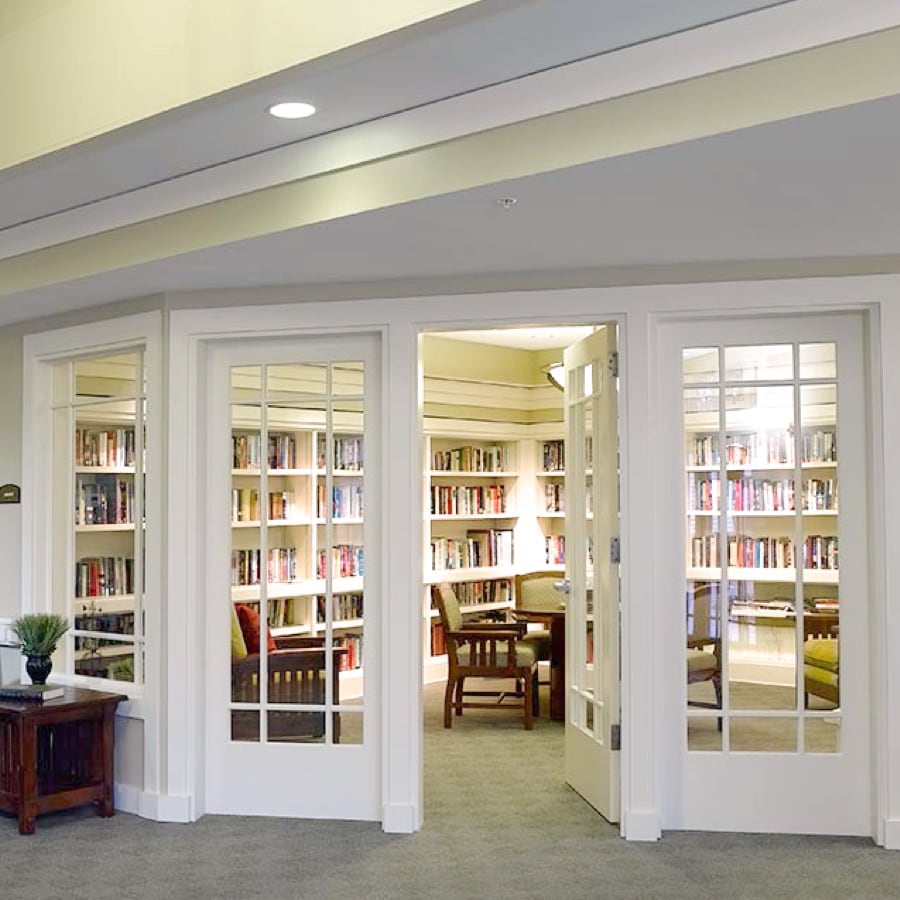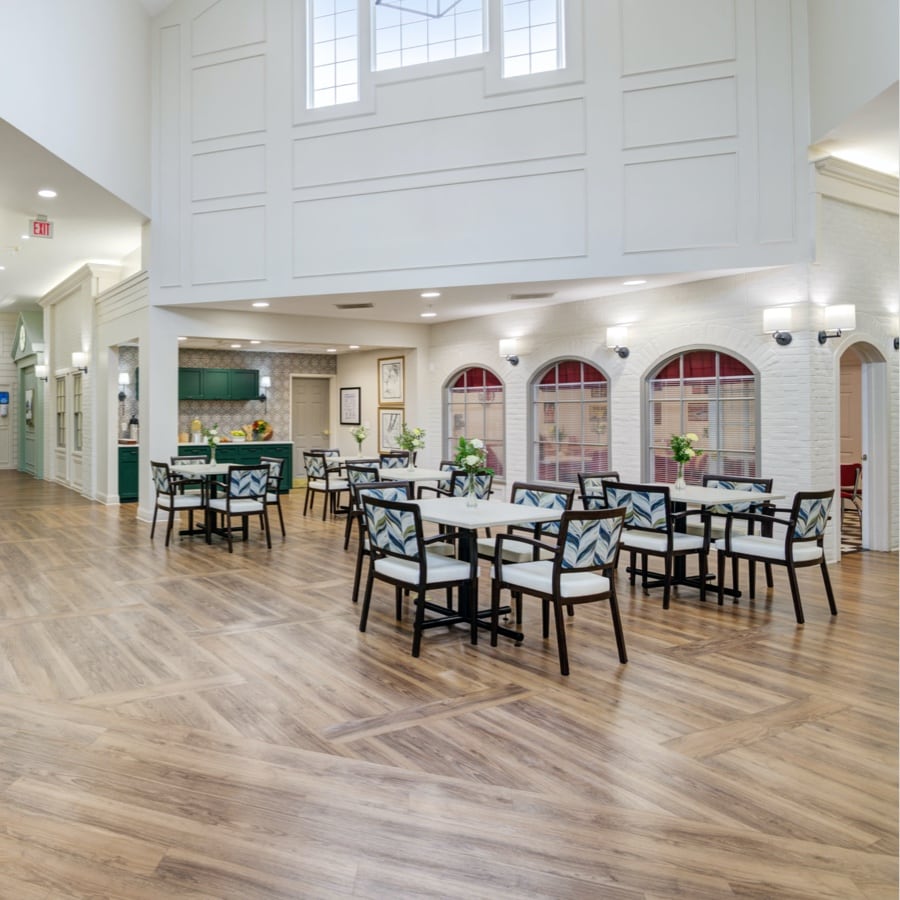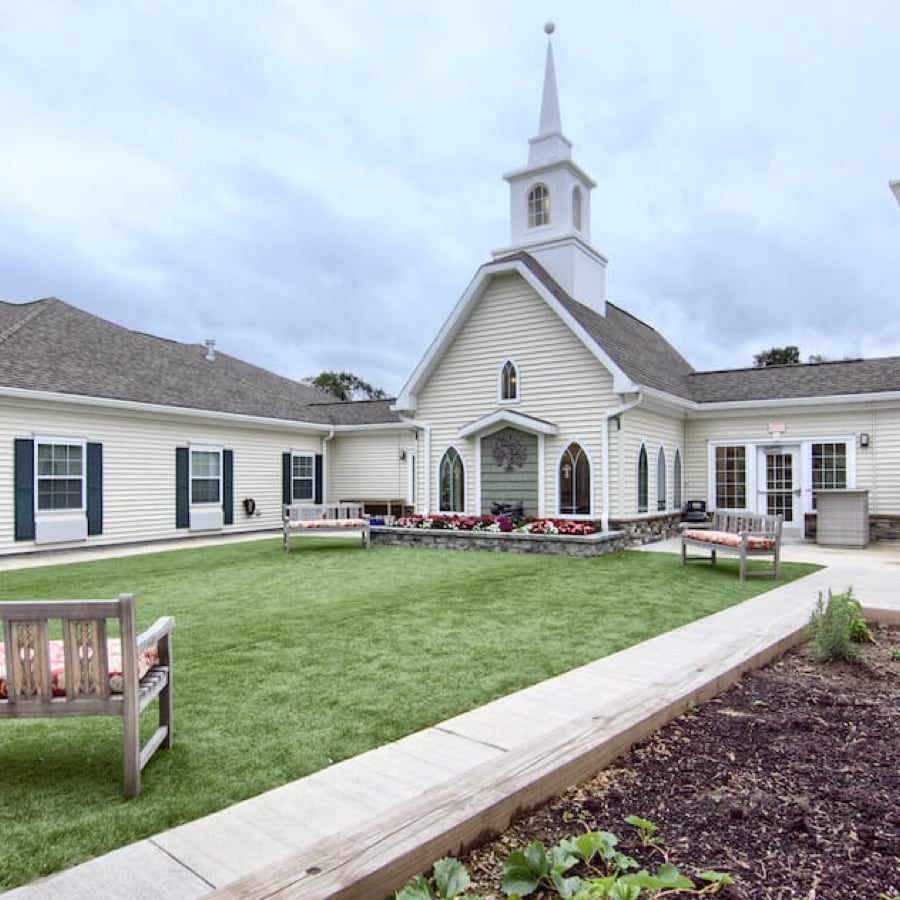Music and the brain have a unique relationship, and music therapy has proven to be highly effective in working with seniors with Alzheimer’s or other forms of dementia. Music is an all-natural form of therapy, appealing to all five senses. Affecting mood, communication, and memory, music is a unique therapy technique for memory care in a senior living community.
Musical memories are often preserved in Alzheimer’s disease because key brain areas linked to musical memory are relatively undamaged by the disease. And while short-term memory loss is often one of the early signs of Alzheimer’s, many who suffer from memory loss are still able to recognize a song from long ago. Why? Because music can still reach the memory storage areas in the brain.
Music in memory care: the benefits
According to a review of several studies on music intervention for Alzheimer’s Disease, music has a number of positive effects. Specifically, music can enhance memory, lower stress levels, reduce symptoms of depression, improve sleep, and reduce agitation. Here are more benefits of music in memory care:
- Mood enhancement. Listening to music can channel the brain to feel happy or relaxed, which can help reduce anxiety and depression. It can also provide a form of distraction. If a person is in physical or emotional pain, music can take their mind off it.
- Improved speech: Music therapy has been proven to help older adults answer questions, make decisions, and speak clearer. It can help slow the deterioration of speech and language skills in dementia patients; studies have shown that even when an Alzheimer’s patient loses the ability to speak, they can still recognize and even hum or sing their favorite song.
- Better physical movement: Music encourages movement, as it evokes a physical response from the body. Memory care residents might sing, hum, clap, and tap their feet. Or even get up and sway to the sounds. This is why music in memory care is beneficial for improving motor functions, coordination, and balance. Even better: residents are having fun!
Music Therapy in a Memory Care Setting
Many senior living communities such as Peregrine Senior Living incorporate music therapy into specialized memory care programming. A few examples of what could be included:
- Playing familiar music and encouraging seniors to shake or tap musical instruments to the beat. Instruments can include plastic hand clappers, rhythm sticks, egg shakers, maracas, jingle bells, spoons, or other objects.
- Using a drum to create a firm beat, which provides a strong sound foundation and enables seniors to follow the beat or create their own rhythm.
- Encouraging caregivers and others to sing, dance, or make music with participants.
Music in memory care also can be individualized, by putting together a personalized play list that appeals to a person’s history. Family members may provide songs that relate to special times or events of a loved one’s life.
Oliver Sacks, a neurologist, historian of science, and author, described the value of music to enhance connections to memories this way: “…people with Alzheimer’s disease and other dementias can respond to music when nothing else reaches them. Alzheimer’s can totally destroy the ability to remember family members or events from one’s own life—but musical memory somehow survives the ravages of the disease, and even in people with advanced dementia, music can often reawaken personal memories and associations otherwise lost.”
A fresh perspective on memory care awaits you at Peregrine Senior Living
At Peregrine Senior Living, music therapy is just one aspect of our innovative approach that uses each person’s meaningful past to help forge a brighter present and future. Download our free Guide to Aging Well today. Learn more about The Peregrine Way™. Contact us today.











